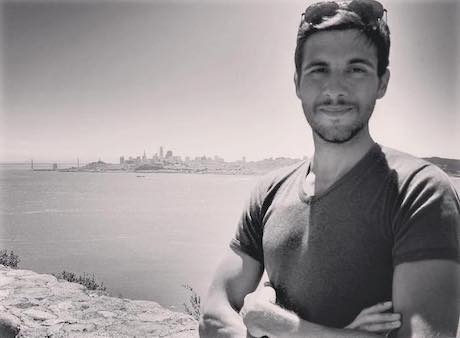About
The East Bay Punk Digital Archive (EBP-DA) is a project developed by Stefano Morello and funded by the Graduate Center Digital Initiatives, Lost & Found, and the New Media Lab .
Responding to the increasing academic interest in punk and its institutionalization—exemplified by the proliferation of academic publications on the topic and the recent institutional acquisitions of a number of personal collections—the EBP-DA aims to preserve and provide open access to the literary production of the participants in the punk-rock commons that loomed in and around the San Francisco Bay Area between the early 1980s and the mid-1990s. The goal of the EBP-DA is to open up the archive and make its content accessible not only to an audience with the cultural and financial capital to access and travel to the institutional archives, but also to subcultural participants from around the world, and to a general public unfamiliar with the topic.
The development of the EBP-DA is part of Stefano Morello's dissertation, "Let's Make a Scene! East Bay Punk and Subcultural Worlding." His work looks at and listens to East Bay punk as the overlooked historical realization of a punk ideal, supported by an autonomous cultural apparatus that, through a set of national and transnational underground networks, perpetuated its own mythology in time and space. With its epicenter in the Gilman Street Project—a non-profit, all-ages, collectively organized music venue that opened its doors in Berkeley in 1986—the East Bay punk scene fostered the inception of subcultural formations that expressed their politics via an aesthetic of silliness and grew out of a generation that bristled at the macho, hetero hardcore scene that punk had become by the mid-1980s.
Zines, flyers, catalogues, and posters provide, through their poetics of amateurism, a behind-the-scenes outlook on the underground punk networks that developed in the United States and beyond. The EBP-DA, as a digital companion to "Let's Make a Scene," acts as a platform that puts in conversation the different clusters of punk and ideologies that converged into and emerged out of the scene.
This project began in November 2017 and, as of 2024, continues to actively expand. While while conducting preliminary ethnographic work for my dissertation, I realized the difficulty in accessing most of the material referenced (and often produced) by the subjects of my research. This prompted me to think about ways to collect the material in a single place, accessible to members of the community that created it, punk rockers, and researchers alike. This project is also my own contribution to the scene and the concrete manifestation of my concurrence with the argument that has been made against the assimilative thrust of “punk studies” as the latest object of cultural capital. “Punk,” Golnar Nikpour reminds us, is “auto-archiving, self-aware, and interested in its own history [and] operates on the premise that everyone is an expert.” Hence the necessity for collaborative punk scholarship and, as suggested by Patrick Deer, Josè Muñoz, and Tavia Nyong’o, with reference to Fred Moten and Stefano Harney’s The Undercommons, a vision of “study” as a speculative practice that can be with and for people where they are. As punk becomes increasingly institutionalized, I thus position my work at the intersection of scholarly investigation and cultural preservation, emphasizing the importance of collaborative and archival research.
 Stefano Morello is a doctoral candidate in English at the Graduate Center of the City University of New York. His academic interests include American Studies, pop culture, poetics, and digital humanities. His dissertation, "Let's Make a Scene! East Bay Punk and Subcultural Worlding," explores the heterotopic space of the East-Bay punk scene, its modes of resistance and (dis-)association, and the clashes between its politics and aesthetics.
Stefano Morello is a doctoral candidate in English at the Graduate Center of the City University of New York. His academic interests include American Studies, pop culture, poetics, and digital humanities. His dissertation, "Let's Make a Scene! East Bay Punk and Subcultural Worlding," explores the heterotopic space of the East-Bay punk scene, its modes of resistance and (dis-)association, and the clashes between its politics and aesthetics.
Credits
Webdesign: Glory Milidoni, Stefano Morello.
Many thanks to Patrick Hynes for letting me use his drawing of Spike Anarkie in the website's logo. And many thanks to Spike Anarkie for lending himself to this – we all know how sensitive he can be when it comes to higher education institutions.
All rights to the material in the archive belong to their respective owners, to whom I am grateful for trusting me with the digital preservation of their work.
